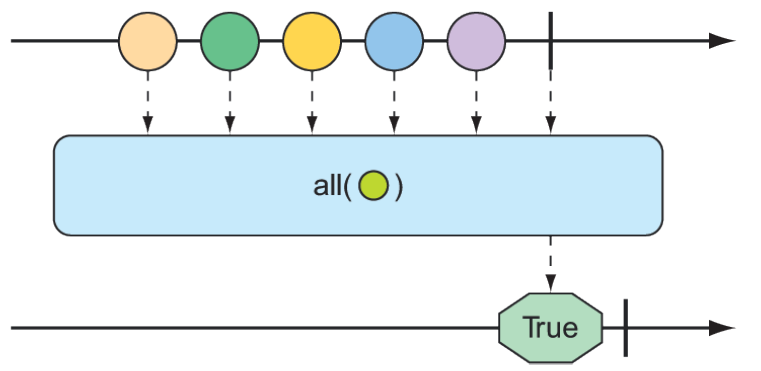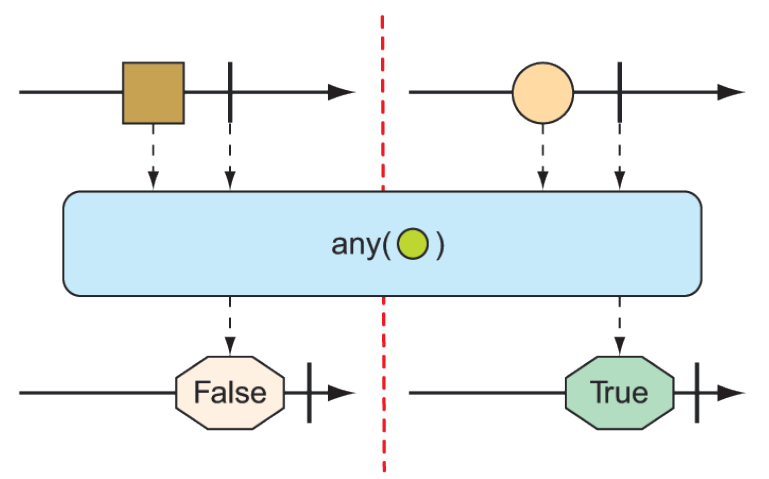11.3.4 Performing logic operations on reactive types
Sometimes you just need to know if the entries published by a Mono or Flux match some criteria. The all() and any() operations perform such logic. Figures 11.21 and 11.22 illustrate how all() and any() work
 Figure 11.21 A
Figure 11.21 A Flux can be tested to ensure that all messages meet some condition with the all() operation.
 Figure 11.22 A
Figure 11.22 A Flux can be tested to ensure that at least one message meets some condition with the any() operation.
Suppose you want to know that every String published by a Flux contains the letter a or the letter k. The following test shows how to use all() to check for that condition:
@Test
public void all() {
Flux<String> animalFlux = Flux.just(
"aardvark", "elephant", "koala", "eagle", "kangaroo");
Mono<Boolean> hasAMono = animalFlux.all(a -> a.contains("a"));
StepVerifier.create(hasAMono)
.expectNext(true)
.verifyComplete();
Mono<Boolean> hasKMono = animalFlux.all(a -> a.contains("k"));
StepVerifier.create(hasKMono)
.expectNext(false)
.verifyComplete();
}In the first StepVerifier, you check for the letter a. The all operation is applied to the source Flux, resulting in a Mono of type Boolean. In this case, all of the animal names contain the letter a, so true is emitted from the resulting Mono. But in the second StepVerifier, the resulting Mono will emit false because not all of the animal names contain a k.
Rather than perform an all-or-nothing check, maybe you’re satisfied if at least one entry matches. In that case, the any() operation is what you want. This new test case uses any() to check for the letters t and z:
@Test
public void any() {
Flux<String> animalFlux = Flux.just(
"aardvark", "elephant", "koala", "eagle", "kangaroo");
Mono<Boolean> hasAMono = animalFlux.any(a -> a.contains("a"));
StepVerifier.create(hasAMono)
.expectNext(true)
.verifyComplete();
Mono<Boolean> hasZMono = animalFlux.any(a -> a.contains("z"));
StepVerifier.create(hasZMono)
.expectNext(false)
.verifyComplete();
}In the first StepVerifier, you see that the resulting Mono emits true, because at least one animal name has the letter t (specifically, elephant). In the second case, the resulting Mono emits false, because none of the animal names contain z.
